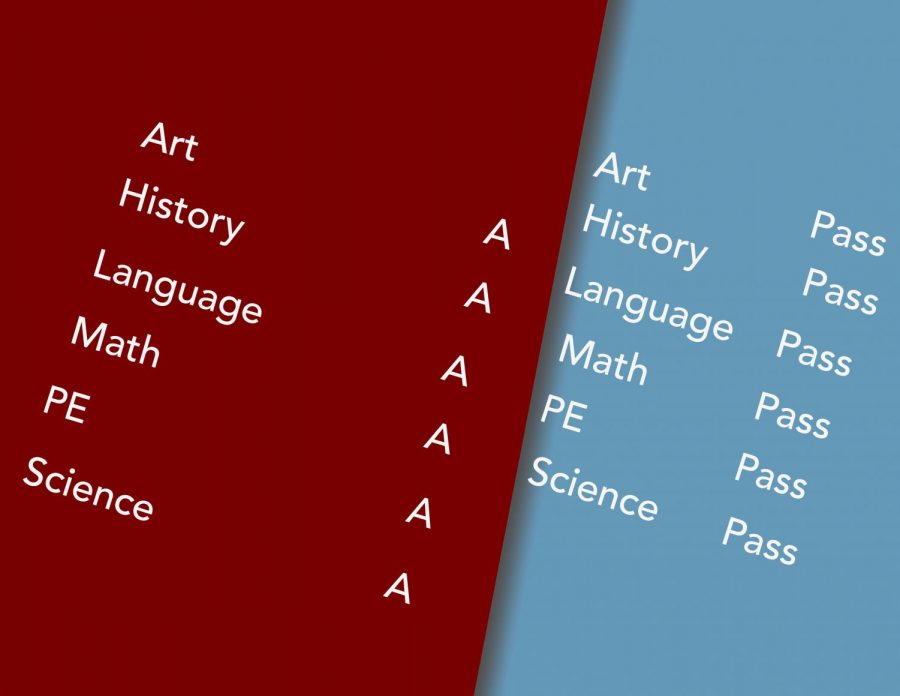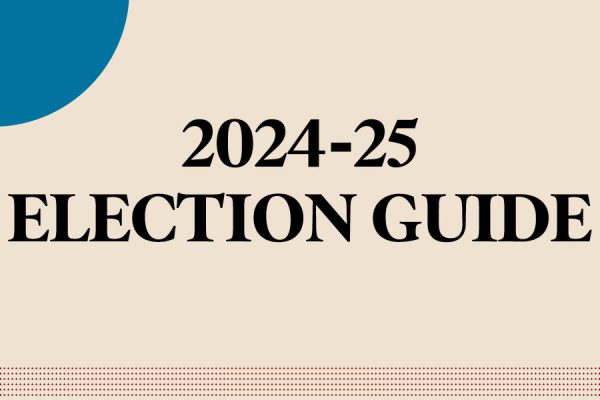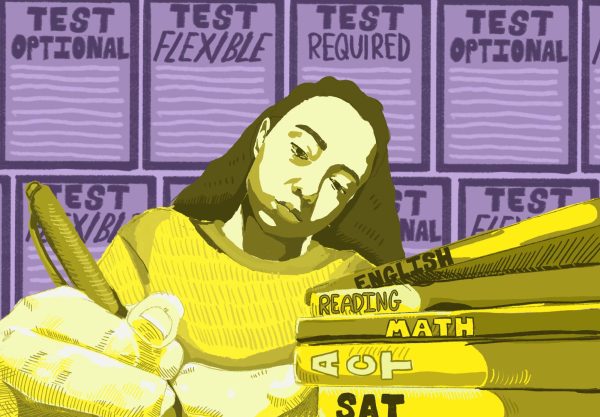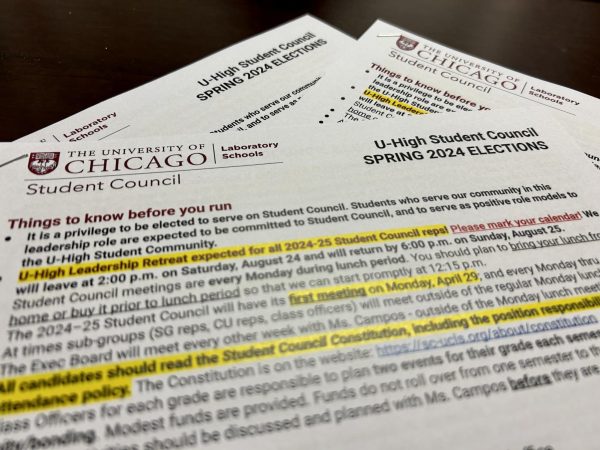Students avoid pass or fail option after considering motivation, college applications
Despite the original intent to help students dealing with issues in distance learning, most students avoid taking the pass or fail option for their courses.
December 17, 2020
Internet issues, a lack of resources at home, and an overwhelming amount of stress induced by the pandemic — all have been common side effects of distance learning. To alleviate learning with students struggling with these issues, the U-High administration created a pass-fail option for the 2020-21 school year and asked students to decide by Thanksgiving break Nov. 20.
However, by the deadline, few students utilized the pass or fail option for their courses due to the fear of either losing motivation or making a bad impression on college applications.
According to counselor Aria Choi, the high school fall implementation team of teachers, counselors and administrators worked throughout the summer to come up with new structures and recommendations for U-High academics to help students through school this year. One recommendation was the option to allow students to take courses and receive only a pass or fail rather than a letter grade, which had been implemented for all classes during the spring semester of the 2019-20 once school closed and distance learning began.
“The original intent was to really allow students with extenuating circumstances to be able to focus on their learning and reduce any stress or pressure they were under,” Ms. Choi said. “We really involved college counselors to discuss the impact of the pass and no-pass note on their applications, and that was a really valuable conversation. Essentially what we learned is that it varies from case to case, depending on the student, the colleges they’re applying to, their record and their situation.”
German is one of the courses I have a harder time with compared to my other classes, so I thought about taking the pass-fail option and asked some of my friends about it.
— Myla Allen
However, Ms. Choi noted that there were far more considerations than there were follow-throughs. She believes that the implication of the option deterred students from taking the option, despite the fact that it could have been something that helped some of them.
For sophomore Myla Allen, there were too many uncertainties with the pass or fail option. She considered using the option for her German course, since she believed it would help her to focus on learning rather than worrying about her grade.
“German is one of the courses I have a harder time with compared to my other classes, so I thought about taking the pass-fail option and asked some of my friends about it,” Myla said. “I mostly heard about how it looks bad on the transcript and college applications, though, and I wasn’t really sure about how the option even worked, so I didn’t go much past that.”
Senior Naomi Corlette also stuck to regular grades due to worries about how it would affect her college application and the person reading it.
“I’m hoping to get good grades to show colleges for the end of the semester,” Naomi said, “and I think they would probably rather see a letter grade than just a pass so they get a better idea of how I did.”
College counselor Stephan Golas believes that while taking classes pass or fail can have a real impact on how colleges view a student’s application, it’s important to weigh the pros and cons when considering the option.
“From the college perspective, there are several schools, especially the University of California and California state systems, that are very strict on pass-fail, and they generally want students to have regular letter grades in required courses,” Mr. Golas said. “Then again, I argue that the best decision is the one that ensures you are navigating high school in a happy and healthy manner. Additionally, there’s always the section in the application where students could explain their situation and why they took the pass or fail option.”
Given all the complications of the college factor when considering pass or fail, Ms. Choi believes that it was necessary for students to communicate with faculty and counselors to demystify the assumptions students had about the implications of the option.
Although many students stayed away from the option due to college-related worries, some students simply thought that taking the option would make them lose motivation for the year. Ninth grader Sasha Watson said the standard grading system helped the year feel more normal.
“Given the pandemic, I think that normal grades would help the year to feel more normal. I really am lucky to have the space and time to do my schoolwork, which made it easier for me to choose letter grading,” Sasha said. “I know it’s something important to recognize since not everyone’s in the same situation.”
According to Myla, the pass or fail option was a great way to show support for students during these unprecedented times.
“I think that it’s really important, and really good, that the school offered this opportunity to students who might have needed it,” Myla said. “Hopefully, sooner rather than later, there won’t be a need for this option anymore, and we can get back to all being in the same learning environment.”


















